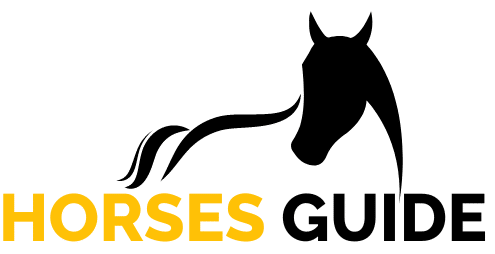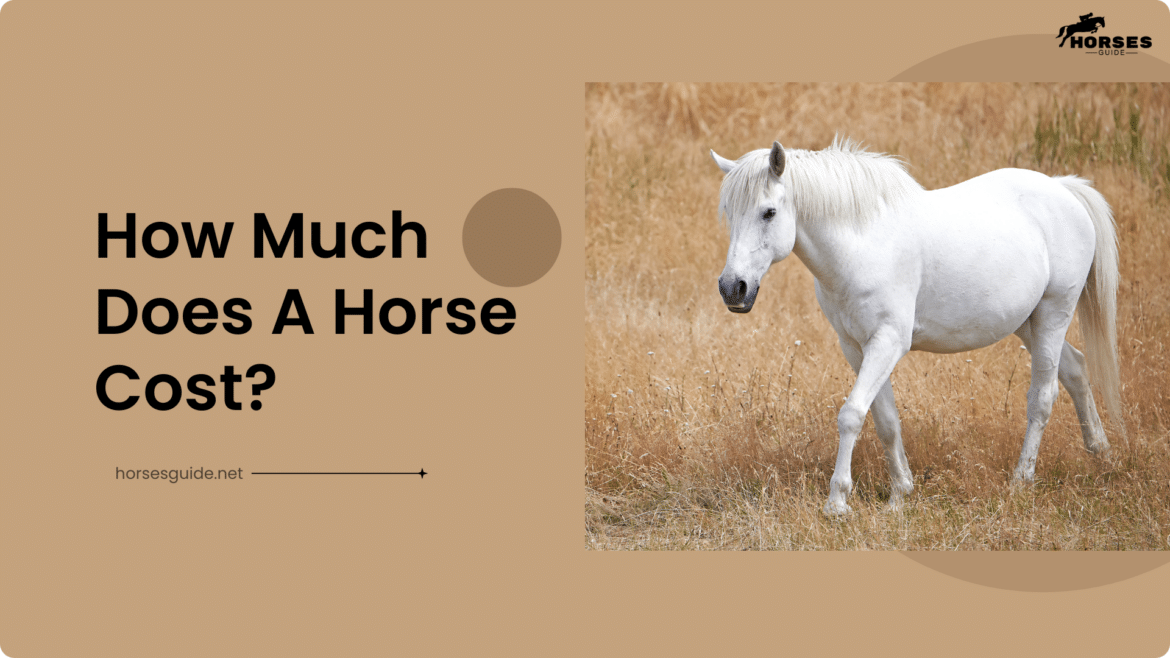Table of Contents
Horses make great equine companions, fostering a bond based solely on affection and loyalty. Owning a horse can be a thrilling and life-altering experience if you know about different breeds, their life span, and more. Now, if you are looking to buy a horse, the price is probably the first question swirling up your mind. It is important to note that apart from having a knowhow about different breeds, factors affecting the costs are also essential to consider. So, in this article guide, we will cover how much is typically a horse in detail. In general, the cost somewhere falls between $100 – $10,000. Let us discuss the rest of the factors in detail.
Factors Affecting Horse Prices
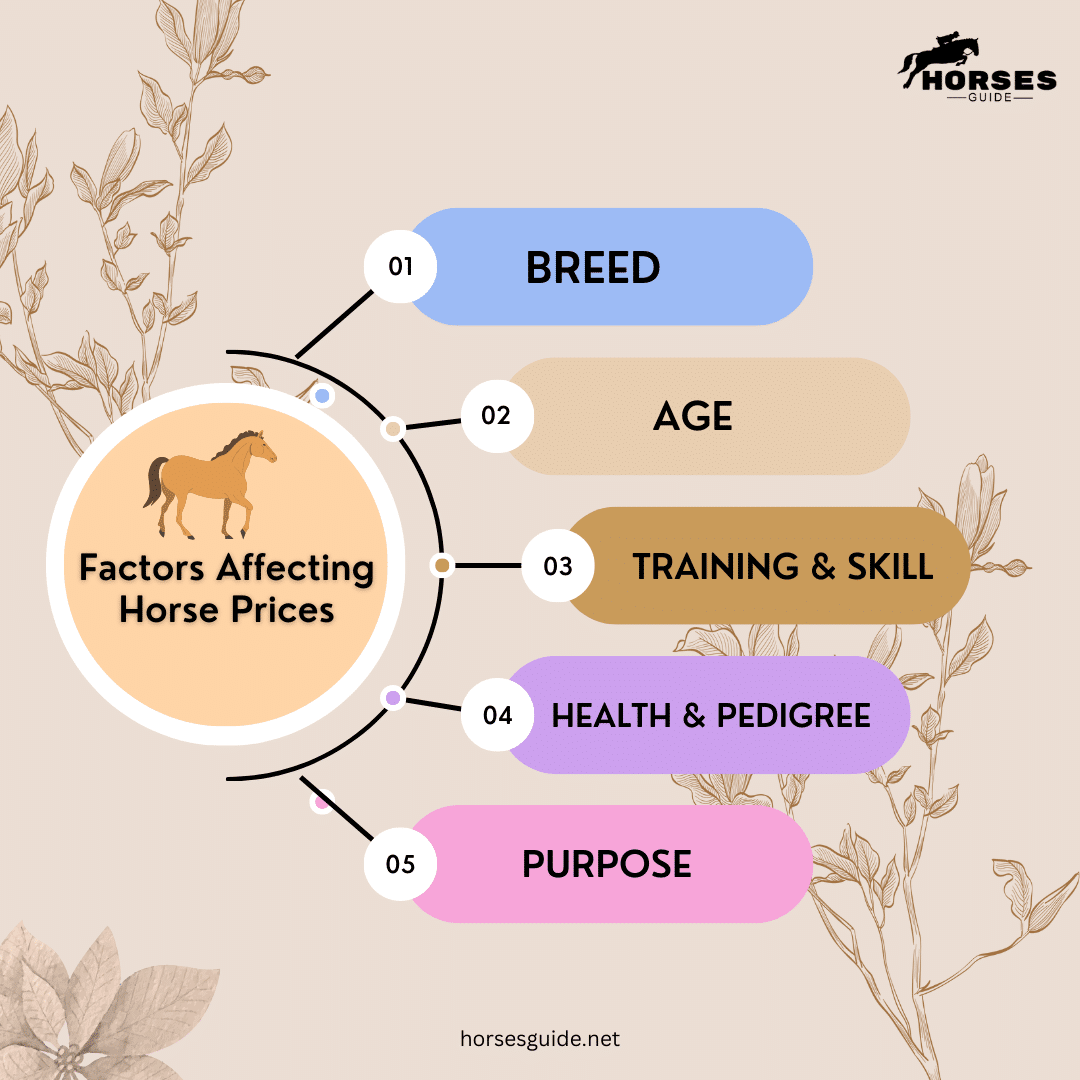
Let’s unravel the factors affecting how much a horse is to buy in detail.
Breed
The biggest price influencer! Breeds like Thoroughbreds, known for racing, can fetch jaw-dropping prices—think millions for potential Derby stars. Other breeds? Not as pricey but still loveable.
Age
Young horses = $$$, especially if they’re trained and have lots of miles left. Older horses might cost less but could come with extra care needs.
Training & Skill
A well-trained horse for competition or show? Expect to pay top dollar. Easy-going, beginner-friendly horses also have higher price tags because of their training.
Health & Pedigree
Healthy horses with a winning family history? That’s a premium combo! People even invest in vet checks and genetic tests to make sure they’re getting top-notch lineage.
Purpose
Riding for fun? Cheaper. Professional competition or breeding? Be ready to spend! Horses for therapy or special uses might also have unique pricing.
Easy to see why prices range so much, right? Each factor can bump up the cost depending on your equine needs!
Average Costs of Horses
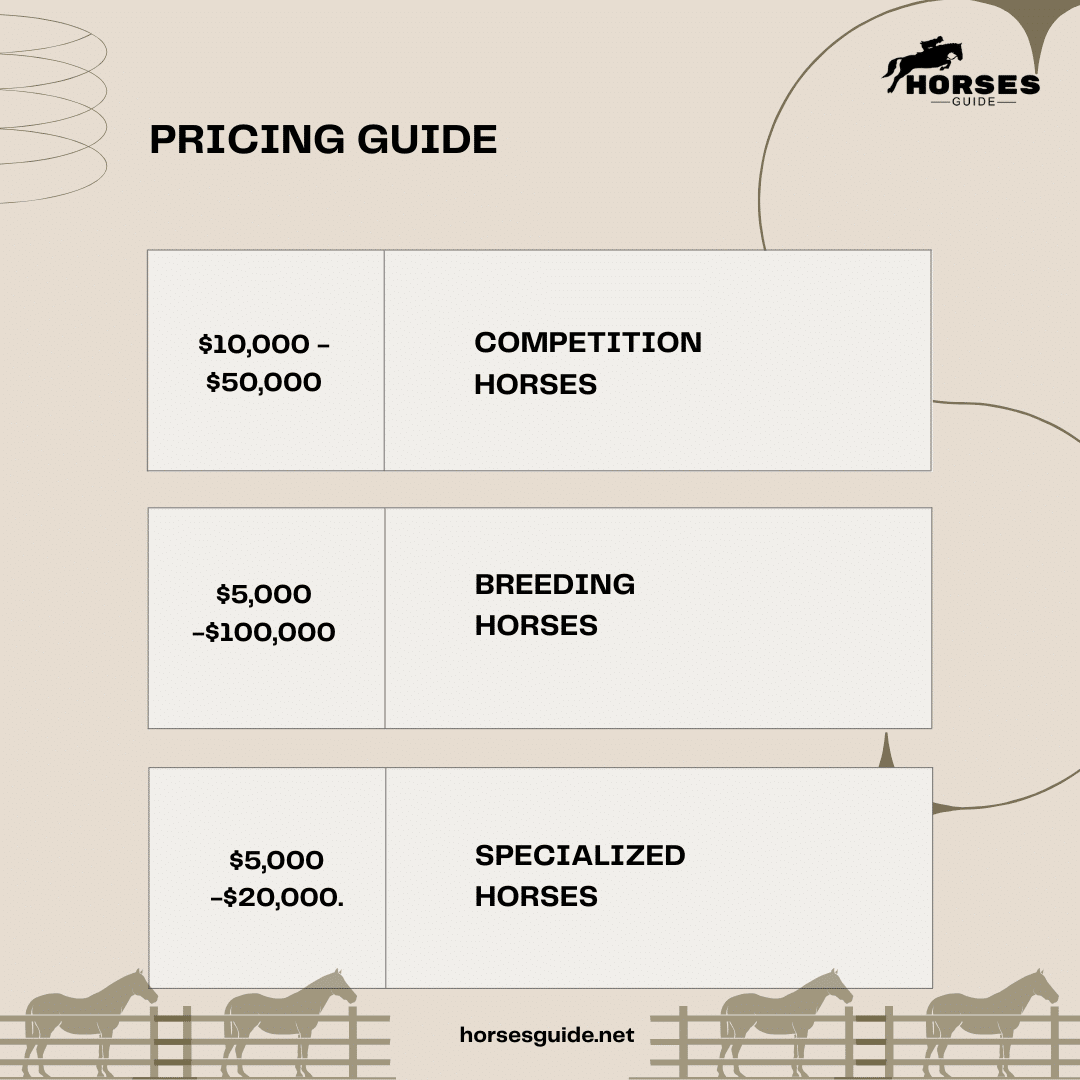
Although there is a wide range of pricing, the following are some general estimates of average horse prices: Recreational Horses: $3,000 to $10,000
- Competition Horses: $10,000 to $50,000
- Breeding Horses: $5,000 to $100,000
- Specialized Horses (e.g., therapy): $5,000 to $20,000.
These costs could vary depending on the previously listed variables as well as the buyer’s particular needs.
Most Expensive Horse Breeds
Certain horse breeds attract high prices because of their outstanding qualities, attractiveness, and rarity.
The following list includes some of the priciest horse breeds in existence:
Thoroughbred
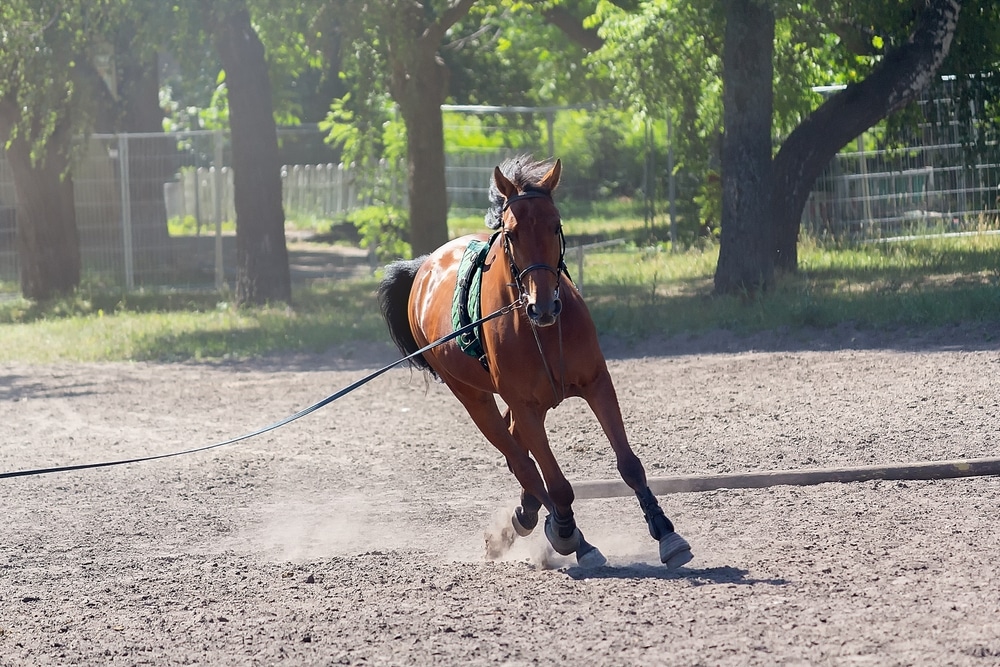
Thoroughbreds are the best option for horse racing because of their legendary quickness and agility. Due to their prominence in the racing business, their prices have increased dramatically. Notable Thoroughbreds have brought in millions of dollars at auction, with some of the costliest selling for over $70 million.
Arabian
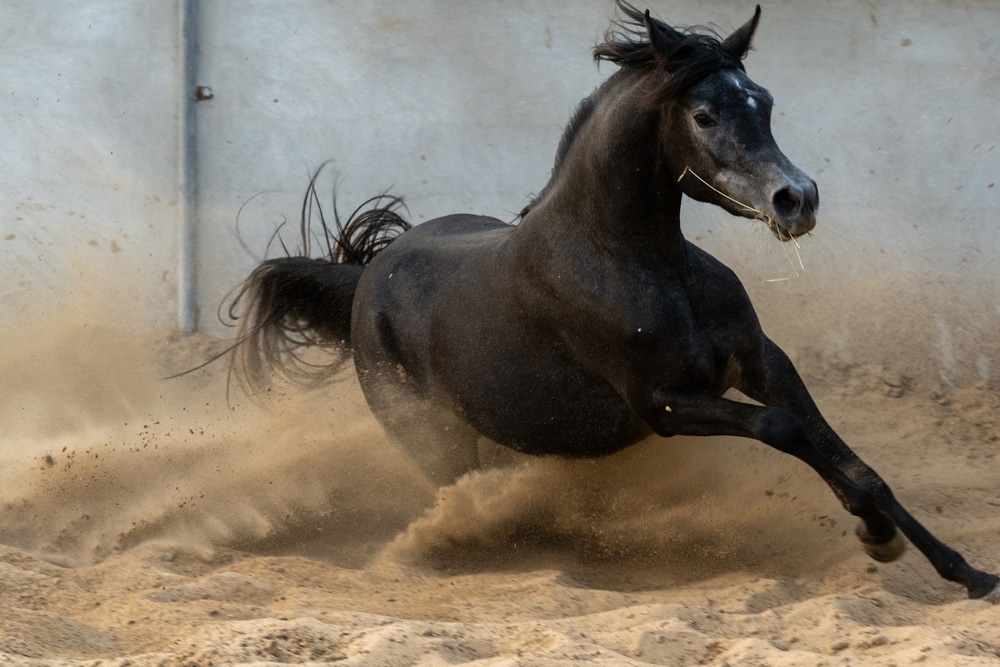
- One of the most revered and ancient breeds, the Arabian horse, is renowned for its adaptability and durability.
- Its unique look and historical relevance add to its exorbitant cost.
- Depending on their training and ancestry, purebred Arabians can fetch anywhere from $5,000 to $15 million at sale.
Dutch Warmblood Horse
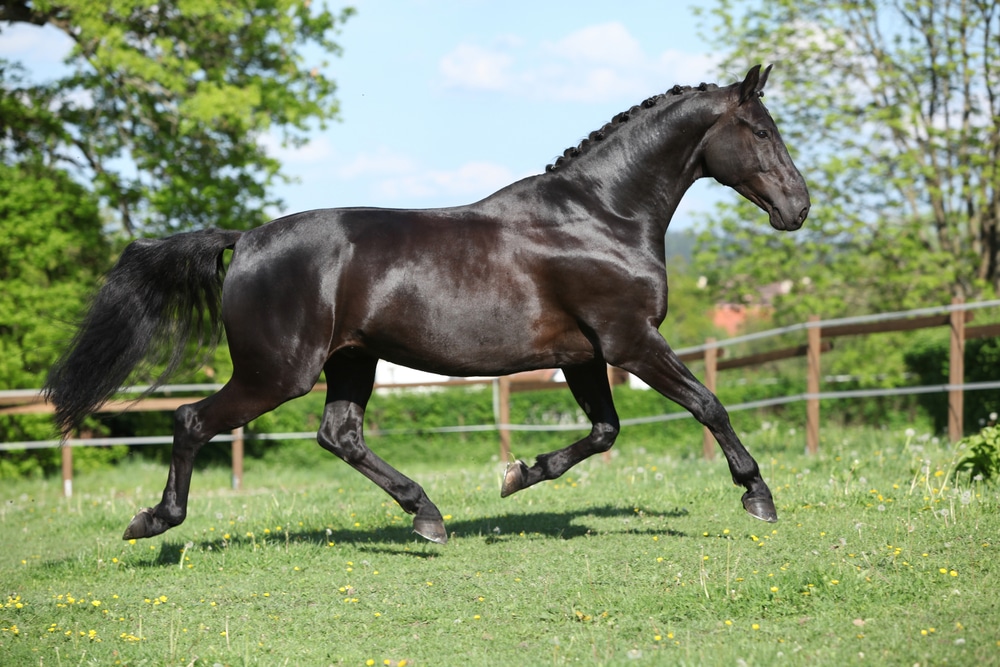
- In the realm of equestrian sports, Dutch Warmbloods are extremely sought after, especially for dressage and show jumping.
- They are popular among competitors because of their exceptional temperament and athleticism.
- Dutch Warmbloods can be purchased for $10,000, $200,000, or even more.
Hanoverian Horse
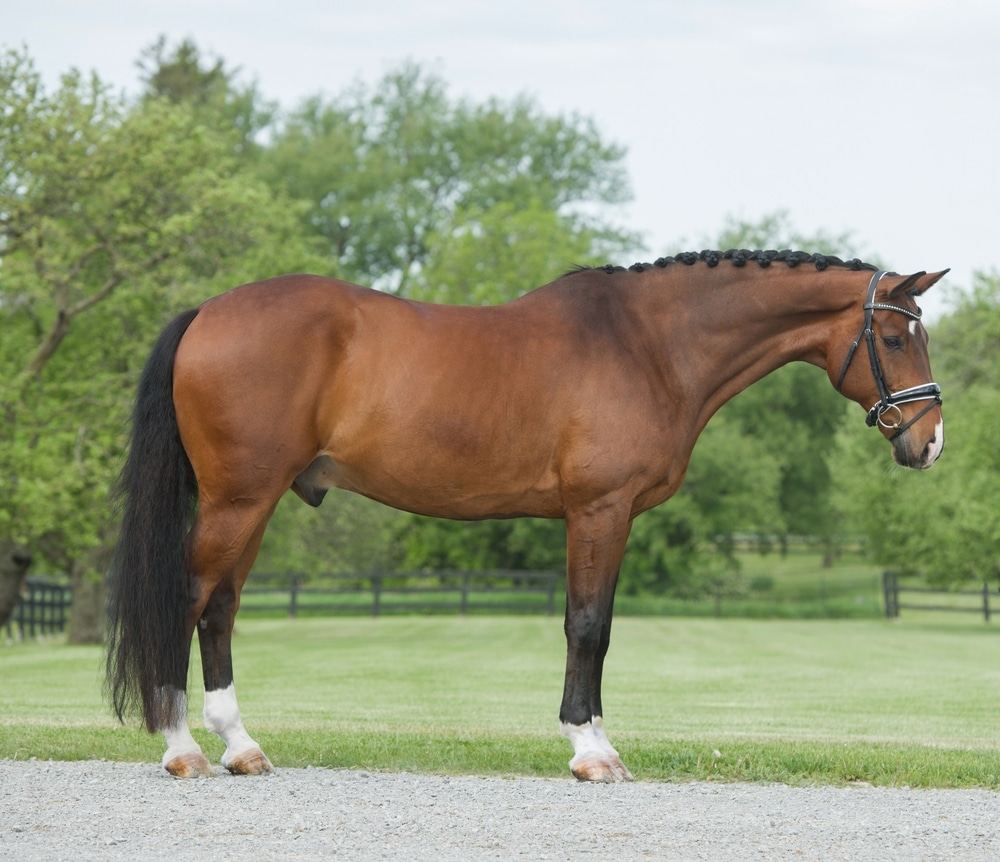
- Because of their strength and grace, Hanoverians are also an excellent option for competitive equestrians.
- They frequently feature in high-level dressage and jumping competitions.
- Their costs range from $7,000 to $100,000, with top-performing horses fetching even higher sums.
Friesian Horse
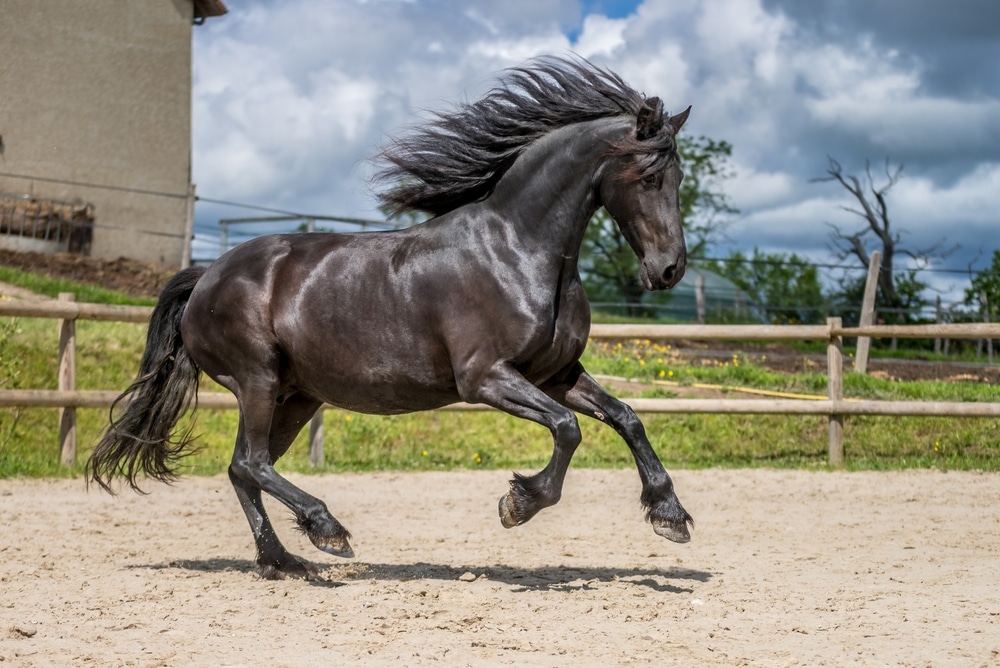
- The remarkable appearance of Friesian horses, with their flowing manes and black coats, is well-known.
- They are more expensive and more appealing because they are frequently featured in movies and formal occasions.
- The usual range of Friesians is $25,000 to $100,000.
Additional Costs for Owning a Horse
The recurring expenses of horse ownership must be taken into account when thinking about buying one. Among them are:
- Boarding: $300 to $1,000 per month
- Feed and Supplements: $100 to $300 per month
- Veterinary Care: $300 to $1,000 per year
- Farrier Services: $50 to $150 every 6 to 8 weeks
- Training and Lessons: $40 to $100 per session
- Grooming supplies: $25 to $100 per month
The location, the particular requirements of the equine, and the degree of care and training offered can all affect these expenses.
If you want to know what to consider before buying a horse, check out this article.
Conclusion
Wrapping up, the article covered a discussion on the average pricing of a horse. If you want to own a horse of your own, knowing about factors impacting the overall cost along with the typical price tag is crucial. So, let’s fulfill the dream of having an equine, a faithful companion, always by your side.


